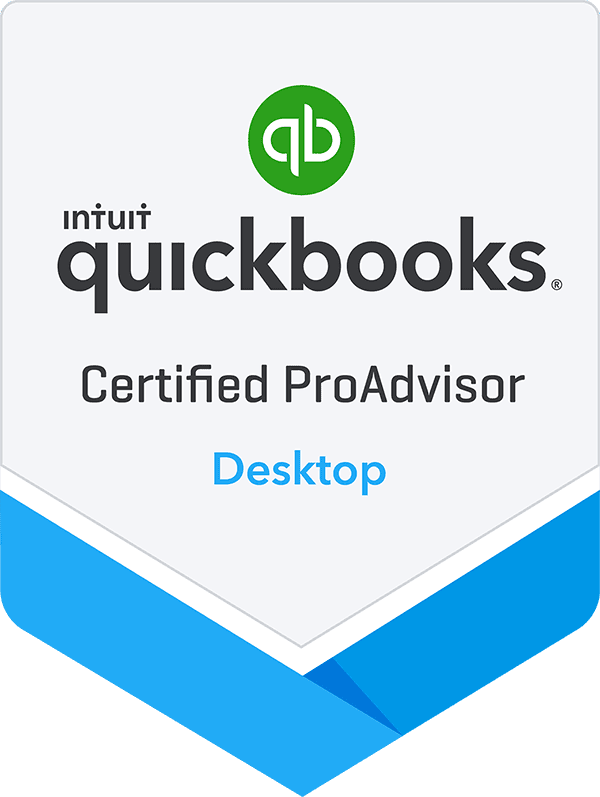
by: Lucrum Staff
With the approaching end of QuickBooks Desktop, more and more organizations are considering Intuit’s cloud-based QuickBooks Online. Our team has heard quite a few stories of businesses rushing to move to QuickBooks Online – ending in migrations gone sideways. We’ve compiled these cautionary tales, so that you can learn from them and (hopefully) avoid becoming the next story.
So, what is behind the migration mishaps? When we started sharing stories, there were some common themes:
- The wrong person made the call to migrate to QuickBooks Online.
- Key integrated platforms weren’t evaluated and considered.
- A test environment was not used to validate all requirements.
- The organization didn’t consider upgrading to QuickBooks Desktop 2024 to buy them more time to formally evaluate their decision.
As you read, take note of how often each of these themes appears. Here are 3 true stories of QuickBooks migrations gone wrong – and how they could have been avoided:
One disclaimer: we are disappointed with the way Intuit has blanketly pushed QuickBooks Online, without regard to businesses’ unique accounting needs. Every time we call for a support ticket we listen to a sales script extolling the virtues, benefits and panacea that is QuickBooks Online. Our team can usually point out a couple of simple facts that the “support specialist” (or should we say QBO pusher?) didn’t inquire about or consider making the recommendation. The point here is not to rely on Intuit to recommend the appropriate accounting system for the business.
1. “Integrations Issues”
Previous version:
QuickBooks Desktop
Who made the decision?
A 3rd party company. A company working for the business recommended moving to QuickBooks Online to enable the use of an app they said would eliminate burdensome manual work. In this story, the migration went wrong out of the gates – the decision to move to QuickBooks Online was made based solely on one desire to automate rather than a holistic analysis of all accounting needs and requirements. The business didn’t have a full time controller or really anyone supervising the bookkeeper or making the higher level accounting decisions, so they did not have the right people to help them make the decision. Thus, once it was suggested by a third party vendor, the well-intentioned management team decided to move forward but didn’t consider what else might NOT work with such a change.
What happened?
The migration was completed without any evaluation of integrated applications, which were critical to the business’s accounting processes. In a nutshell, the way QuickBooks was integrated with the business’s timekeeping system, project management system and payroll system did not translate well to QuickBooks Online.
The connection to the project management system broke as a result of the migration, and ended up duplicating data in the new system. The new QuickBooks Online system did not recognize data in the same way that Desktop did. As a result, the business could no longer run accurate job costing reports.
The cautionary tale here is this: QuickBooks Online does not recognize, label or treat data the same way as QuickBooks Desktop. It also does not integrate with third party applications in the same way. These differences need to be identified and planned for prior to making plans to migrate.
QuickBooks Online does not recognize, label or treat data the same way as QuickBooks Desktop
How could it have been avoided?
A test environment would have revealed the issues with Job Costing and the way the integrated platforms would behave. It’s worth saying that this process should not be quick – it is best practice to run the test environment for several months first, so that various scenarios are unearthed and accounted for in testing. That may seem like a long time to test, but it is better to spend 4 months testing, than 4 months cleaning up a mess after not having ANY reliable financial data during that time.
Where are they now?
After Lucrum’s team was called in to help, our accountants were able to make updates after the fact to account for the differences in data. Additionally, Lucrum helped the business to adjust its processes to better map to the way the new software ecosystem works out of the box – to meet key accounting goals. It’s still a work in progress but we think we finally have a path forward.
2. “Industry Complexity Challenges”
Previous version:
QuickBooks Desktop Premier, Industry-Specific Version
Who made the decision?
An attorney (yes, you read that right!) wanted more convenience when it came to logging in to their system (they had VPN access already) and so encouraged the business to move to QuickBooks Online.
What happened?
QuickBooks Online is not well-suited out of the box to support the complexity of accounting for this business’s industry. The result was a bit of data chaos. Balances sitting in Desktop didn’t have anywhere to go in Online, so the software threw balances into incorrect sections. To add to the challenges, there was no knowledge transfer from a firm that had previously worked with the business and made many adjusting entries, some quite questionable upon review, without explanation.
How could it have been avoided?
Like story number one, a formal test environment and validation of all requirements beforehand could have helped the business to avoid the many issues resulting. A formal knowledge transfer between the other firm and the accounting firm would have helped as well. Finally, such an important decision as changing an accounting system should NOT be based on one professional’s ability (or lack thereof) to conveniently access the data. There are plenty of fixes for that issue that don’t involve the risk and time involved in changing accounting systems.
Where are they now?
The customer is now back on QuickBooks Desktop. Since they had only been on QuickBooks Online for a few months, Lucrum stepped in to upgrade them to QuickBooks Desktop 2024 Premier and perform manual journal entries to bring the few months of data back into their Desktop file. This move stopped the ‘bleeding’ and buys time for the organization to go through a formal evaluation and testing regarding where to go next – since QuickBooks plans to sunset its Desktop software. (Lucrum made this same decision – to move back to Desktop and upgrade to 2024 – for a separate company that had only been on QuickBooks Online for 1 year and was experiencing issues.)
In general, if the business has been on QuickBooks Online for a shorter amount of time (1 year or less) and is experiencing severe challenges, it may be a good candidate to move back to Desktop and upgrade to 2024. Staying on Desktop as long as possible and seeing where Online goes (Intuit is continuing to make improvements) before making the final call on whether to go to QuickBooks Online or upgrade to QuickBooks Enterprise is better than making a hasty decision.
The decision to move to QuickBooks Online isn’t a decision you want to make without help.
3. “Bad Numbers Made Worse”
Previous version:
QuickBooks Desktop
Who made the decision?
An external strategic accounting consultant.
The consultant knew that an internal employee asked to multi-task and take on accounting functions wasn’t qualified to be performing AR and AP. Instead of trying to put the right accounting resources into place first, the focus became ‘fixing the software.’ It’s worth saying that since a non-accounting role was performing accounting functions, the numbers in the current accounting software could not be trusted. (It’s also worth saying it’s not the employee’s fault they were forced to perform the role outside of their skill set or job title.)
What happened?
The business migrated to QuickBooks Online without any prior validation of the solution. The resulting QuickBooks Online setup could not provide job costing data and, with that, accurate margins could not be calculated. Changing systems made correcting the inaccuracies much harder because the user now had to look through two completely separate systems.
Adding another element to the story, this business first bought an expensive accounting solution that their accounting department was not qualified or trained to implement. When that ship sank, a sales team for a well-known CRM system convinced the business to invest in it, promising a seamless integration with QuickBooks Online. Keep in mind, QBO is still a mess, so how beneficial can this integration be if the system that the data is flowing into is not able to handle it reliably? Long story short, this business has invested hundreds of thousands of dollars in expensive software solutions that did not fix their problems with inaccurate financial data.
How could it have been avoided?
Test, test, test. We can’t say it enough. In every one of these cases, standing up a test environment would have saved the business much headache. In this case, it would have been doubly helpful to test to see if the CRM software, that was pitched to the business as one way to ease their data problem woes, did what they needed it to.
Where are they now?
The business is still on QuickBooks Online with issues and struggling to use their popular CRM system. They made a six-figure investment in the integration with the CRM, but it’s still not working properly. The lesson here is not to buy expensive software without the back-office processes or budget to fully implement it.
The lesson here is not to buy expensive software without the back-office processes or budget to fully implement it.
If these cautionary tales haven’t already said it for us: “The decision to move to QuickBooks Online isn’t a decision you want to make without help.” From integrations to core differences in the way the platforms handle and label data, there is a lot to consider. If your organization is considering a move to QuickBooks Online, get expert help. Learn more about our QuickBooks Desktop Discontinuation Consultation. Lucrum can help you have Confidence in the Numbers.

QuickBooks Desktop is Going Away
Should I migrate to QuickBooks Online or Upgrade to Enterpise? Get a customized plan from our experts.



